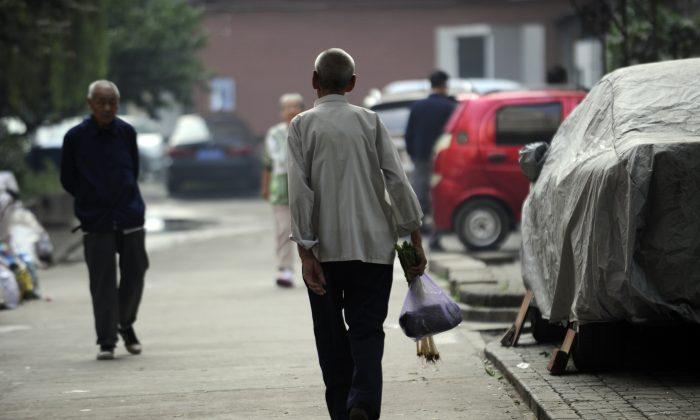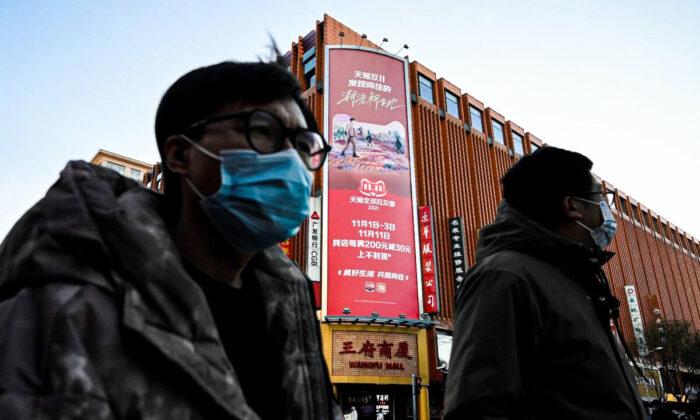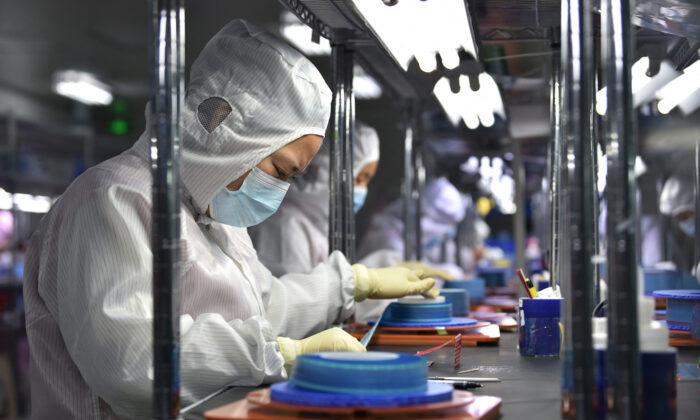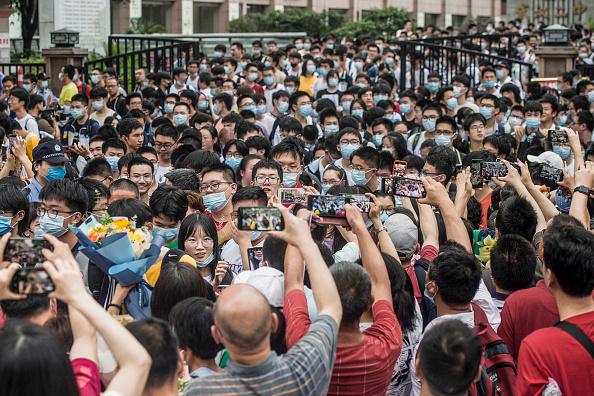The “China collapse theory” has once again become popular—and not in the usual places. Words that were once used exclusively in articles authored by “hostile forces”—like “cliff,” “crisis,” and “collapse”—now are publicly used by Chinese. Even more unusually, it is Chinese Communist Party (CCP) officials themselves that are using these terms to describe China’s economy.
Among them, China’s incumbent Minister of Finance Lou Jiwei is the most prominent recent example.
Approaching The Cliff
On the morning of Feb. 26, Lou Jiwei gave a short seminar talk at G20’s economic summit held in Shanghai. In the speech, he warned that the later structural reform comes, the less space will be left for carrying out reform.
Despite a number of problems to be solved, China is “lucky” to still have some space for reform, he said. Hesitating only results in less room, like placing oneself near a cliff. “A person may fall off a cliff, but a country can’t. If that happens, what is left for us is just endless suffering. So it would be best to anticipate the crisis when ‘one kilometer’ away from the cliff, and expedite reforms starting there. Don’t wait until the last meter, and fall off the cliff.”
For outsiders, it may seem that Lou was discussing China’s issues within the context of the global economy. But insiders know that Lou was using a clever means of delivering a message to China’s leaders who dictate policies. The Chinese government is currently placing much tighter constraints on speech, and economic statistics can’t be announced without approval. So even as the Minister of Finance, Lou Jiwei is only able to make the alert in an indirect manner, at an international conference.
The Ministry of Finance is the money pouch of the Chinese government. Lou Jiwei’s job is to manage it. Therefore Lou was certainly referring to a financial crisis when he spoke of about being “one kilometer away from the cliff.” As he mentioned, China is lucky to be still “one kilometer” away, but how fast is the distance being shortened? One meter per day? Two meters per day? Is China walking slowly, or sliding fast? The answers lie in how effective China’s upcoming reforms will be.
Financial Safety
The Ministry of Finance’s report of revenue and expenditure can be regarded as China’s national accounts. What they tell us is that China is encountering a serious deficit problem. The scent of financial crisis can be seen from the following news.
First, China’s annual financial deficit reached 2.3 trillion yuan ($353 billion) in 2015. According to an article published in National Business Daily on Feb. 1, China’s general public budget revenue in 2015 was 15.22 trillion yuan ($2.3 trillion), with a record-low growth rate of 5.8 percent since 1988. In the meantime, the national general public budget expenditure is 17.58 trillion yuan ($2.7 trillion), with a growth rate of 13.17 percent. This results in an annual financial deficit of 2.3 trillion yuan, 735 billion yuan ($113 billion) more than the year-beginning estimate.
Second, China’s revenue began to decrease in January 2016 compared to the same period last year. The latest statistics published by the Ministry of Finance show that the central government’s expenditures in January 2016 were 839 billion yuan ($129 billion), 11.6 percent more than last January. In contrast, the revenue this January dropped by 0.7 percent to 726 billion yuan ($111 billion) compared to last January, resulting in a monthly deficit of 113 billion yuan ($17 billion). More deficits are expected as China’s economy continues to slow.
Third, more financial pressure is being put on local governments. Official reports show that in the first 11 months of 2015, revenue from selling the rights to state-owned land dropped by 29.2 percent compared to the same period in 2014. The use of land sales to prop up local budgets appears no longer sustainable.
As China is now so close to the cliff of financial collapse, what should the first steps of reform be? Those familiar with China’s economy should already know the answer—the pension system.
The First Cuts
China’s seniors make up nearly 15 percent of the total population. Obviously, unfunded pensions are closely linked with social instability, and if any other solutions existed, the government would never want to touch the pension system. But continuous bankruptcies are making it difficult to raise taxes, and budget cuts are the only solution to a surging deficit.
Pension reform started last year, with Lou Jiwei announcing a pension reform plan in a March press conference. He said that China’s future pension system will comprise three major parts: the current social pension system; enterprise annuities; and personal purchases of commercial health insurance plans, or pension plans. In October, the policy of “raising the retirement age in progressive steps” was announced.
In November 2015, the CCP’s Central Committee announced the plan to terminate free health insurance for retirees. In January 2016, Lou Jiwei published an article in Qiushi magazine in which he clearly stated that the government is drafting a policy for retirees on their employer’s healthcare plans to start paying their own premiums.
Why did the pension system become the first target in reform? The answer is very simple. Compared to cutting the paychecks of government officials, military expenditures, or public security spending, it’s safest to cut the income of the people. Even in the worst case, Chinese would probably do no more than complain or make some jokes attacking the government. There’s no concern about a revolution led by seniors, surely?
This is an abridged translation of He Qinglian’s Chinese article posted on the Chinese website of Voice of America on Feb. 28, 2016. He Qinglian is a prominent Chinese author and economist. Currently based in the United States, she authored “China’s Pitfalls,” which concerns corruption in China’s economic reform of the 1990s, and “The Fog of Censorship: Media Control in China,” which addresses the manipulation and restriction of the press. She regularly writes on contemporary Chinese social and economic issues.






Friends Read Free